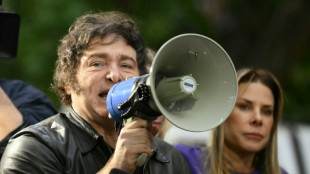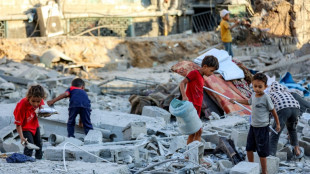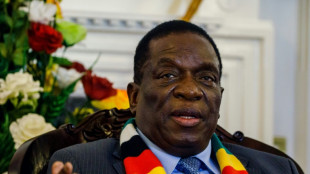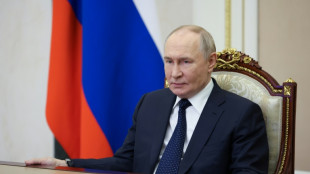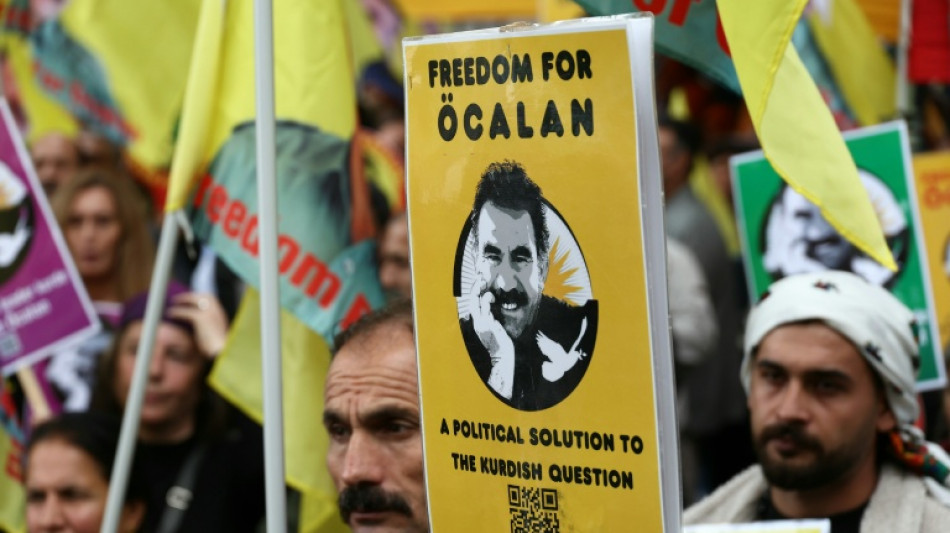

Kurdish PKK says withdrawing all forces from Turkey to north Iraq
The Kurdish militant PKK said Sunday it was withdrawing all its forces from Turkey to northern Iraq, urging Ankara to take legal steps to protect the peace process.
The Kurdistan Workers' Party (PKK) formally renounced its armed struggle against Turkey in May, drawing a line under four decades of violence that has claimed some 50,000 lives.
"We are implementing the withdrawal of all our forces within Turkey," the PKK said in a statement read out at a ceremony in the Qandil area of northern Iraq, according to an AFP journalist present.
At the ceremony were 25 fighters -- eight of them women -- whom the PKK said had just left Turkey. You
Turkey hailed the move as "concrete results of progress" in efforts to end one of the region's longest-running conflicts.
But the PKK urged the Turkish government to waste no time in taking the necessary legal steps to advance the process, which began a year ago when Ankara offered an unexpected olive branch to its jailed leader Abdullah Ocalan.
"The legal and political steps required by the process ... and the laws of freedom and democratic integration necessary to participate in democratic politics must be put in place without delay," it said.
"Significant steps need to be taken, legal arrangements for a process compatible with freedom," senior PKK militant Sabri Ok told journalists at the ceremony, referring to laws governing the fate of those who renounce the armed struggle.
"We want laws that are specific to the process, not just an amnesty."
The group has said it wants to pursue a democratic struggle to defend the rights of the Kurdish minority in line with a historic call by Ocalan.
- 'Specific to the PKK' -
Turkey began indirect talks with the PKK late last year in a move backed by President Recep Tayyip Erdogan, who hailed a PKK move to start destroying weapons in July as a victory for Turkey.
Turkey has also set up a cross-party parliamentary commission which is working to lay the groundwork for the peace process, which involves preparing the legal framework for the political integration of the PKK and its fighters.
"Special laws and amendments must be made... this is a situation specific to the PKK," Ok said.
"We hope the authorities will fulfill their responsibilities in this process."
The parliamentary commission is due to complete its work by the end of the year, but that deadline could be extended if needed by two-month periods, its chairman said in August.
The 48-member parliamentary commission is also tasked with deciding the fate of Ocalan, the group's 76-year-old leader, who has been held in solitary confinement on Imrali prison island near Istanbul since 1999.
His release has been central to the PKK's demands, who want him released to coordinate and manage the transition to democratic politics.
But so far there has been little change in his conditions, although last month he was allowed to meet his lawyers for the first time since 2019.
Analysts say with the PKK weakened and the Kurdish public exhausted by decades of violence, Turkey's peace offer handed Ocalan a chance to make the long-desired switch away from armed struggle.
In July the PKK held a symbolic ceremony in the mountains of northern Iraq at which they destroyed a first batch of weapons, which was hailed by Turkey as "an irreversible turning point".
DEM, Turkey's third-biggest party, has played a key role in facilitating an emerging peace deal, with Turkish media saying a party delegation would meet with Erdogan in the coming days before travelling to see Ocalan on Imrali island.
A.Gmeiner--MP

